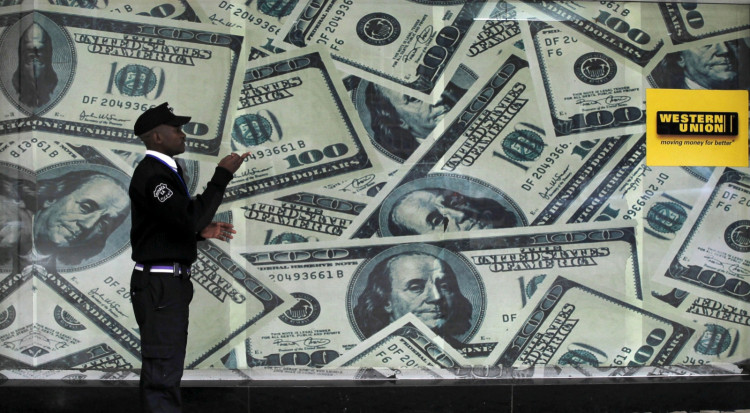The weakening of the US dollar index might be linked to the Euro hitting a historical high. However, given the unfavorable outlook for the European economy, it might be challenging for this trend to endure.
As of last Friday, the dollar index had surged by over 1% within five days, marking the most significant weekly gain in three months. The Euro also retreated from its record high.
However, before this, the Euro-Dollar exchange rate was nearing a 17-month high. Since falling below parity with the dollar in September last year, the Euro has risen over 18%.
Earlier, Wall Street Journal had reported a major issue concerning the US dollar index: the weight of the Euro is significant, making up almost 60% of the index. This heavy weighting means the dollar index is significantly influenced by the Euro's exchange rate.
This phenomenon could be one of the reasons why the dollar index is declining, despite the fact that US interest rates are still high and the 10-year US Treasury yield is being maintained at a high level.
The Euro's strength can be attributed to the European Central Bank's (ECB) implementation of its most aggressive monetary tightening cycle in history. However, an abundance of data indicating that the European economy is slipping into recession has now hampered this upward trend.
Bloomberg noted that technical signals suggest the Euro is overbought. The Relative Strength Index (RSI) for the Euro has indicated a bearish reversal over the last nine weeks. Meanwhile, the Commodity Channel Index, which measures current prices relative to historical levels, has started to decline, signaling potential future losses.
Brad Bechtel, a strategist at Jefferies LLC, said that he expects the Euro's exchange rate to retreat, suggesting the Euro and the British Pound have gone a bit "overboard" compared to reality.
Analyst Vassilis Karamanis, surveyed by Bloomberg, predicts that the Euro-Dollar exchange rate will fall to $1.10 in September before rising to $1.12 by year-end. He explained that based on the interest rate differentials, the Euro-Dollar exchange rate should be lower than $1.10. Despite support from option demand pushing the Euro price to levels unseen in 17 months, the macroeconomic background has seen no fundamental change.
Market prejudice about an overreaction to the Federal Reserve's tightening cycle coming to an end is evident once again. The common currency needs new catalysts to restore its upward trend.
Focus on this week's ECB Meeting The ECB is scheduled to hold its monetary policy meeting this week, and markets generally expect a 25-basis point rate hike with more attention focused on the policy direction in September.
With the growing tug of Europe's lackluster economic outlook and deflation, there's an increasing belief that the Eurozone's rate hikes could soon come to an end.
Kit Juckes, Chief Currency Strategist at Société Générale in France, stated that growth will be the biggest challenge, and the European economy needs to demonstrate greater resilience.
If the ECB announces a softening of its aggressive rate hikes this week, the Euro's rally could also face resistance.
John Hardy, Head of Forex Strategy at Saxo Bank, mentioned that currency strength could be a focal point in the ECB's message this week. He suggested that the central bank might be concerned about currency issues and view them as a risk to economic growth.






